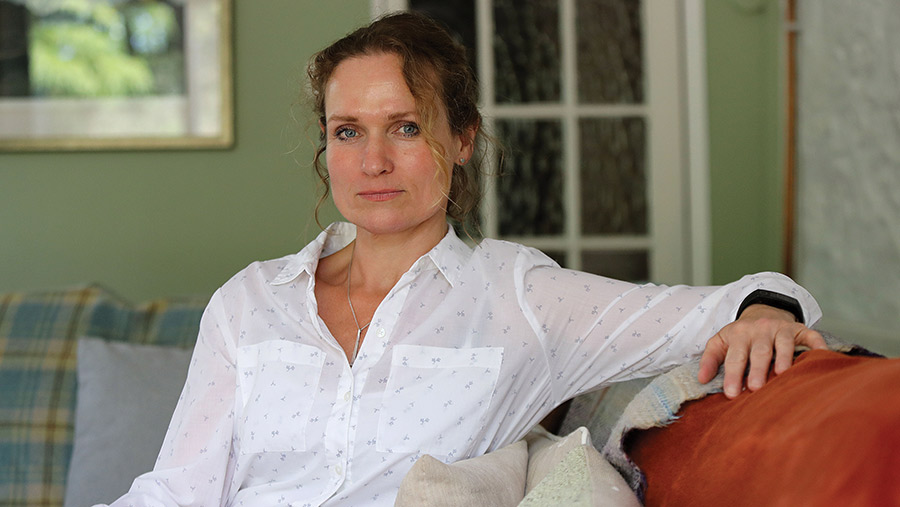Domestic abuse: Does living in rural areas make it harder to report?
 © Adobe Stock
© Adobe Stock At this year’s Royal Welsh Show, the Farmers’ Union of Wales lodged its support of an annual initiative that seeks to shed light on the issue of domestic abuse in rural areas.
Established in 2012 by the National Federation of Women’s Institutes (NFWI), the “Not in My Name” campaign recruits male ambassadors to make a stand against violence and abusive behaviours, particularly against women.
See more: Short film highlights challenges of rural domestic violence
It comes in the wake of a recent National Rural Crime Network report, which found that rural victims of domestic abuse tend to suffer for 25% longer than those in urban areas because of geographical isolation and barriers to accessing help and support.
And that, on average, 85% of victims seek help from professionals at least five times before receiving effective support.
Farmers Weekly spoke to charity The Willow Project and rural domestic abuse victim Rhianon Bragg to shed light on the topic.
How bad is the issue?
It is difficult to gauge the scale of the problem, as, until recently, rurality was not used as a category when recording instances of domestic abuse.
The Willow Project, a part of the Rural Action Derbyshire (RAD) charity, is dedicated to helping victims of rural domestic abuse, and has worked tirelessly with both police and abuse services to remedy this.
“We have got them to include rurality as one of their criteria when they are capturing information,” says Emma Simpson, head of communications at RAD.
“We want to raise awareness. We want people to understand that they may not even be aware they are in an abusive relationship.
“Many people think of domestic abuse as physical or sexual violence, but it is emotional, financial – it can be controlling and coercive behaviour, gaslighting, and isolating people.”
Geographical impact
Geographical isolation, Emma says, is about more than just being in the countryside.
It can mean a stigma because of the “everyone knows everyone” community, or poor infrastructure, and barriers to accessing internet or even a mobile phone signal.
“In a rural area, you are more geographically isolated, and, in some instances, abusers deliberately move to the countryside to isolate their victim.
“It is very much a closed community system that can often protect the family of the perpetrator, as the family may have deep connections within the small rural community.
“Knowing everyone in a community can make it harder, because of embarrassment, and less anonymity,” says Emma.
There are also other barriers that can prevent victims from seeking help. “Rural victims may have animals that they care for, that they can’t take with them or don’t want to leave behind.
“Threats can be made to harm the animals if the victims don’t do what they are ‘told’,” she says.
Who is affected?
While not specific to the countryside, national figures show that one in three women and one in five men experience domestic abuse.
But, not all cases are reported, and not all cases that occur in rural areas are recorded as such.
“Everyone and anyone can experience domestic abuse, whether they are well-off landowners, farmers, young or old, part of the LGBTQ+ community, male or female,” Emma explains.
“We do assume that the majority of victims are women in a heterosexual relationship, but this is not always the case.
“There are often children involved, which makes it more difficult to leave, especially as some refuges don’t take boys over a certain age. And there are often animals to consider. Refuges don’t take pets.”
Victim held at gunpoint by her abuser
Rural domestic abuse victim Rhianon Bragg was held hostage by her shotgun-wielding former partner, who detained her in a barn for nearly eight hours.

Rhianon Bragg © Ian Cooper Photography
The final strike in a crusade of abuse and harassment, the perpetrator was jailed in 2019 after committing a series of offences, having subjected Rhianon to stalking, controlling and coercive behaviour, and, finally, an ambush at gunpoint.
Based on a small holding, Rhianon says that rurality played a prominent role in her experience: “I’m looking out of my window now, and I can’t see another person.
“They might be there somewhere, but there is nobody visible here, and he absolutely maximised that.
“One of the initial issues I faced when reporting this to the police was that there were no witnesses.
“And he [the perpetrator] knew this, because we were so rural. He had very easy access to guns, and was given them back by the police repeatedly after being arrested.”
Highlighting another key issue with rural isolation, Rhianon says that small, closed communities can act as a barrier to reaching out for help.
“Because we live rurally, and in communities where everyone knows each other, it can actually make you hesitate to seek help,” she explains.
“You think about how everyone will view you, whether they will believe you, and how they will be manipulated by the perpetrator.”
Ms Bragg also recalls that the lack of phone reception in rural Wales meant that even in times where she had the opportunity to make a phone call for help, she was prevented due to insufficient signal.
Now working to promote women’s safety and start conversations about abuse within remote communities, Rhianon says: “It is really important to recognise quite what widespread damage this sort of abuse causes.”
“It is incredibly positive for me, and cathartic, to be able to do what I am doing now – speaking out about the issues, educating through my experience and hoping to prevent others from suffering in the same way.”
FUW urges farmers to challenge abusive behaviours
After launching its support of the National Federation of Women’s Institutes’ “Not in My Name” campaign, Farmers’ Union of Wales (FUW) president Ian Rickman said that everyone has a role to play in challenging bad behaviours.
“As a large, national membership organisation, the FUW is proud to be part of the campaign, which we helped to launch at the Royal Welsh,” he says.
“The agricultural industry is not immune from those behaviours, and we all have a role to play in calling out inappropriate behaviours and attitudes and to tackle violence against women.
“In many instances, it is worse for women in isolated rural communities – often unable, or not knowing how, to access support, so it’s even more important that our rural communities hear about the campaign.”
